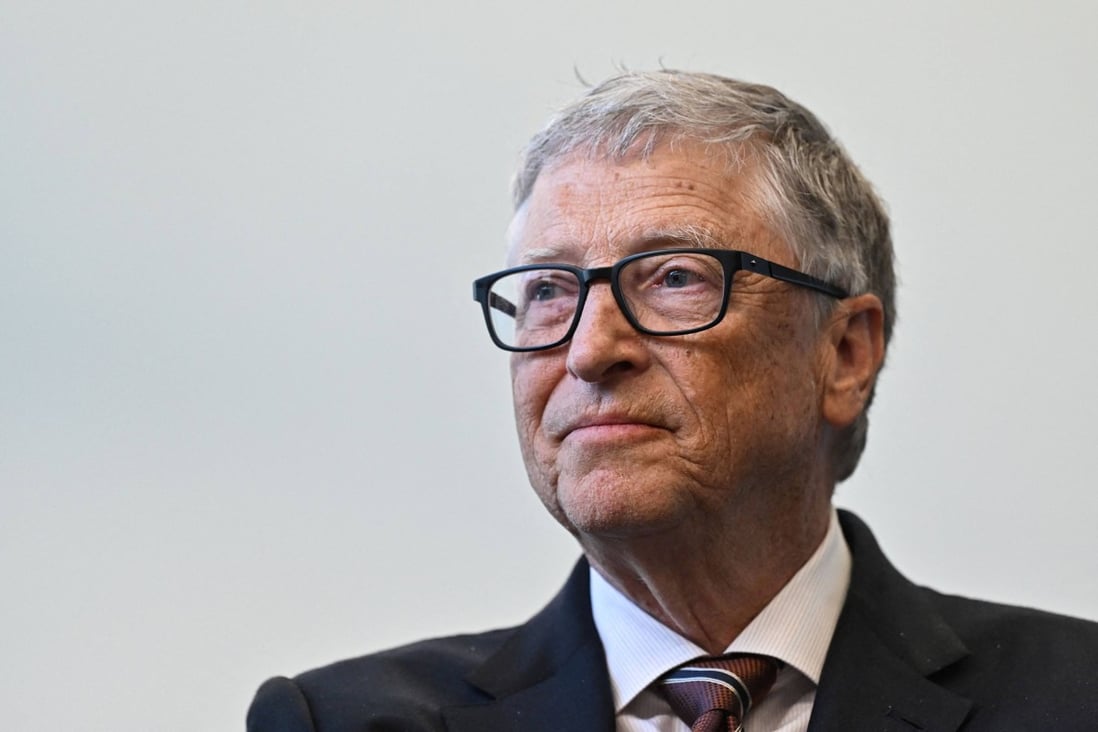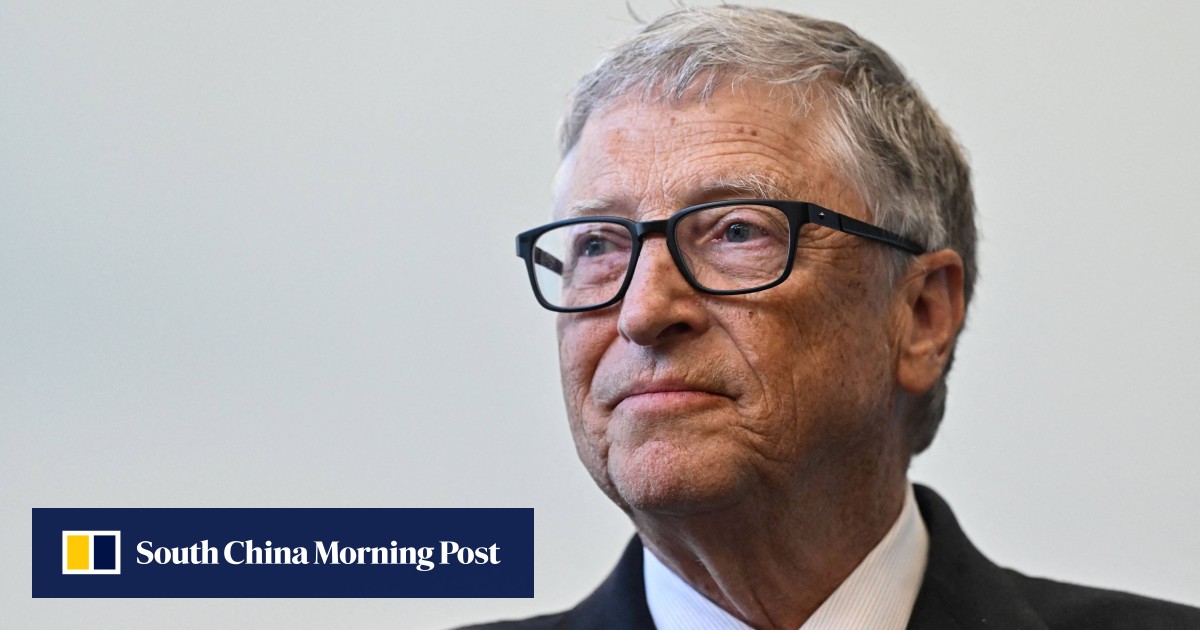onebyone
SENIOR MEMBER

- Joined
- Jul 2, 2014
- Messages
- 7,550
- Reaction score
- -6
- Country
- Location
Bill Gates hails China’s potential to cut poverty and improve health overseas as he unveils US$50 million research funds
- In Beijing, billionaire and philanthropist hopeful China can play a bigger role ‘addressing the current challenges, particularly those facing African countries’
- Gates paid tribute to Chinese agronomist Yuan Longping who taught 3,000 rice scientists from around the world who then used that knowledge at home
-

In Beijing, Microsoft founder Bill Gates announced that his foundation and the Beijing government would each provide US$50 million to GHDDI over the next five years to bolster the institute’s drug discovery capacity. Photo: AFP

In Beijing, Microsoft founder Bill Gates announced that his foundation and the Beijing government would each provide US$50 million to GHDDI over the next five years to bolster the institute’s drug discovery capacity. Photo: AFP
China could play a bigger role in reducing poverty and improving health outcomes in other countries, according to American billionaire Bill Gates, who unveiled US$50 million funding to support a joint disease and medicine research organisation with China.
In a speech at the Global Health Drug Discovery Institute (GHDDI) in Beijing on Thursday, the Microsoft founder said there was an urgent need to address global challenges, such as hunger crises, climate change, the Covid-19 pandemic and the resurgence of infectious diseases.
“China has made significant gains reducing poverty and improving health outcomes within China. I’m hopeful China can play an even bigger role in addressing the current challenges, particularly those facing African countries,” said Gates, emphasising Africa’s rising malaria cases and difficulty growing weatherproof crops.
In the 1950s, China had at least 30 million malaria cases and more than 300,000 malaria deaths every year, but by 2021, it was certified malaria-free by the World Health Organization, Gates said. He said Chinese scientists were “building on this legacy by developing next-generation solutions to help eradicate malaria worldwide”.
The non-profit institute, jointly founded in 2016 by the Bill & Melinda Gates Foundation, Tsinghua University and the Beijing municipal government, has the stated mission of improving long-term global health by accelerating development of new drugs and innovative technologies to tackle diseases that disproportionately affect the developing world.
Gates, who was in China for the first time since 2019, announced that his foundation and the local government would each provide US$50 million to GHDDI over the next five years to bolster the institute’s drug discovery capacity, while Tsinghua would lend support in areas such as building and sharing research platforms, translating research discovery and developing talent.
“China has invaluable experience to share from its own successes in health, agriculture, nutrition, and poverty reduction. And it has talent,” Gates said, adding that young people in labs, start-ups and classrooms across the country were “inventing the solutions of the future”, including new medicines, technologies and “climate-smart” crops.
He paid tribute to Chinese agronomist Yuan Longping, who is known as the “Father of Hybrid Rice” for developing the world’s first crossbred rice varieties in the 1970s. Yuan died in 2021 aged 90.
“Yuan taught more than 3,000 rice scientists from more than 50 nations who applied what they learned from him in their home countries. It’s hard to imagine a more important discovery than the one that made it possible for billions of people to survive and thrive,” Gates said. He said “the next generation of discoveries” was needed, and that his foundation supported Chinese scientists in that pursuit.
Chinese innovators played an important role in global partnerships, Gates said. And to speed up progress in confronting global challenges requires all parts of society – including governments, academia, business, and philanthropy – to play a role.
He was optimistic about catalysing solutions, and mentioned China’s progress in improving the infant mortality rate. The number of young children dying has dropped by 94 per cent in just one generation, he said.
Gates shared on Twitter on Wednesday, upon landing in Beijing, that he would head to West Africa next, adding that countries in Africa were “particularly vulnerable, with high food prices, crushing debt and increasing rates of [tuberculosis] and malaria”.
“Solving problems like climate change, health inequity and food insecurity requires innovation. From developing malaria drugs to investing in climate adaptation, China has a lot of experience in that,” he said.

Bill Gates unveils US$50 million fund for joint health research with China
In Beijing, US billionaire and philanthropist hopeful China can play a bigger role ‘addressing the current challenges, particularly those facing African countries’.

